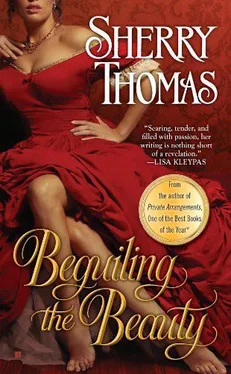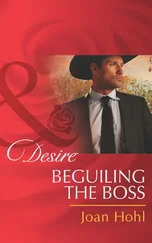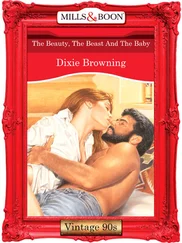But there was a charisma to him that held the audience in his thrall, a pull greater than the sum of his cogency and his good looks. Perhaps it was his very civil haughtiness, the unmistakable authority to his voice, or the combination of his ancient title and his very modern endeavors.
At the end of the lecture, a series of questions came from the men in the audience, some of whom were members of the Harvard faculty, some, members of the press.
Venetia reached across Millie and handed Helena a piece of paper. “Ask him.”
To be the first woman to ask him a question would leave an impression on the duke.
Helena looked down at the question Venetia had suggested: What do you think of theistic evolution, sir? “Why me? You should do it.”
Venetia shook her head. “I don’t want him to think I’m too forward.”
But before she could further push Helena, an American young woman rose from the audience.
“Your Lordship.”
Venetia winced at the incorrect use of the duke’s title. A duke was never “my lord,” but always “Your Grace.”
“I read with great interest your article in Harper’s Magazine ,” continued the young lady. “In the article you briefly tantalized readers with your view that human beauty is also a product of natural selection. Would you care to elaborate on that?”
“Certainly,” said His Grace. “From an evolutionary point of view, beauty is nothing more than a signifier of one’s fitness for reproduction. Our concept of beauty derives largely from symmetry and proportion, which in turn denote structural health. Those features we find most pleasing—clear eyes, strong teeth, unblemished skin—represent youth, vigor, and freedom from disease. A man who is attracted to young, healthy females is more likely to breed than one who is attracted to elderly, sickly ones. Therefore, our view of beauty has undoubtedly been influenced by millennia of successful selections in the past.”
“So when you see a beautiful woman, sir, is that what you think, that she is fit for reproduction?”
Venetia’s jaw slackened. Americans had such phenomenal cheek.
“No, I rather marvel at the homage we pay beauty—it is fascinating for a man of science.”
“How so?”
“We have been taught from birth to judge one another on character. Yet when faced with beauty, everything goes out of the window. Beauty becomes the only thing that matters. This tells me that Mr. Darwin was exactly right. We are descended from animals. There are certain beastly instincts—the attraction to beauty, for example—that are primal to our makeup and override the markings of civilization. So we romanticize beauty, out of embarrassment that we should still be so susceptible to it in this day and age.”
The audience murmured at his unconventional and very decided views.
“Does this mean you do not enjoy beauty, sir?”
“I do enjoy beauty, but I enjoy it the same way I enjoy a cigar, with the understanding that while it gives temporary pleasure, it is essentially meaningless, and perhaps might even be harmful in the long run.”
“That is a very cynical view of beauty.”
“That is all the consideration beauty deserves,” said the duke coolly.
“You might have a slightly more difficult time than you first anticipated, Venetia,” said Helena softly.
“The duke is clearly a troublemaker.” In whom Venetia was developing a rather lively interest, an interest that was perhaps warmer than warranted for a potential brother-in-law.
A young man leaped to his feet. “Sir, if I understand you correctly, you have essentially declared all beautiful women untrustworthy.”
Venetia tsked. The duke had said no such thing: He’d advised a neutral stance on the consideration of beauty. Beautiful women, like all other women, should be approached and judged on aspects beyond mere physical attributes. And what was wrong with that?
“But beautiful women are essentially untrustworthy,” replied the duke.
Venetia frowned. Not that old chestnut. It was as bad as equating beauty with virtue. Worse, probably.
“A beautiful woman is desired for as long as her beauty holds, forgiven for all trespasses, and never asked to be anything other than beautiful.”
Venetia snorted. If only.
“But surely, sir, the rest of us are not so blind as that,” argued the young man.
“Allow me to present some anecdotal evidence, then. Anecdotal evidence does not constitute data. But where unbiased, unpolluted data is not possible—a given when it comes to the study of the human psyche—we will have to make do.
“Some years ago, I passed through London in the latter part of August, a time when English Society vacates the city entirely and repairs to the country. My club was empty, except for myself and another man.
“I knew this man because he’d once been pointed out to me as the husband of a very beautiful woman. He spoke briefly of his wife and warned that a man shouldn’t covet her unless that man wanted to become like him.
“The conversation was distasteful to me. It also made no sense, until I read the man’s obituary in the papers a few days later. I made some inquiries and learned that not only was he bankrupt, he had also run up exceedingly large accounts at several jewelers. The circumstances of his death had very nearly triggered an inquest.”
Something clanged inside Venetia’s head. This woman, whom the duke clearly blamed for her husband’s death … Could he possibly be speaking of her ?
“His widow remarried scarcely a year later, to a much older, very wealthy man. Rumors were rife that she conducted an affair with his good friend. And when he was on his deathbed, she did not even have the courtesy to attend him. He died alone.”
He was speaking of her, only with the facts hideously distorted. She wanted to cover her ears, but she couldn’t move. She couldn’t even blink, but could only stare at him with the blind gaze of a statue.
The judgment on her second marriage stung, but that didn’t quite matter as much—she’d helped spread some of those rumors herself. But what he’d implied about Tony, in Tony’s own words, no less, insinuating that Tony wouldn’t have killed himself had it not been for her …
“Exceptionally heartless, our beauty.”
Had his speech slowed? Each damning syllable hung for an eternity in the air, an air brilliant with the projecting lantern’s beam, a thousand specks of mote caught in a harsh white radiance.
“You’d think an odor of censure would hang about her,” the duke continued inexorably. “But no, she is welcomed everywhere and constantly pelted with proposals of marriage. No one, it seems, can remember her past. So, yes, I do believe the rest of us are indeed that blind.”
There were other questions. Venetia didn’t hear them. Nor did she really hear the duke’s answers, except his voice, that aloof, clear, inescapable voice.
She didn’t know when the lecture ended. She didn’t know when the duke left or when the rest of the audience filed out. The theater was dark and empty when she rose, politely removed her sister’s hand from her arm, and marched out.
I still can’t believe what happened,” said Millie, pressing another cup of hot tea into Venetia’s hands.
Venetia had no idea whether she’d finished the contents of the previous cup or whether it had turned cold and been taken away.
Helena paced the parlor, her shadow long and lean upon the wall. “There are a great many lies and liars involved here. Mr. Easterbrook’s family is certainly a mendacious bunch. Mr. Townsend was capable of a great deal of it. And, Venetia, you, too, have contributed your share in covering for the two of them.”
Читать дальше












